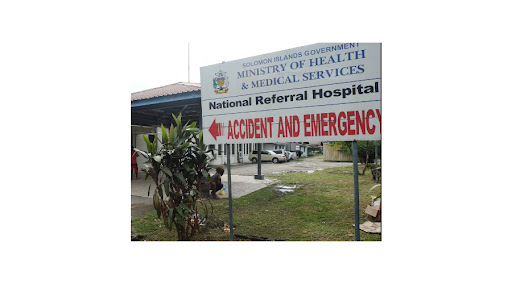“Australia is not the only leading voice on disability inclusion on the global stage, but it is an important one, and in many fora it is often the only donor voice speaking for the Pacific. For a small investment – to restore and increase the core disability budget – and some pro-active strategy development and international engagement, we can reclaim our once pivotal role on the global stage.”
The above passage I read today on the website of the Disability Rights Programme funded by DFAT of the Australian government, Australia being a major and important development partner of the Solomon Islands Government.
My concern for the rights of those with disabilities in the Solomon Islands, and I have in mind the long outstanding needs of NRH patients having succumbed to diabetes and had surgery to have a lower limb removed, such as a leg or a foot, is well documented, but my concerns very largely go unanswered.
I say this because the National Referral Hospital was gifted a modular building in September 2000 to be fitted out as a rehabilitation workshop replacing an old Colonial era structure that was demolished some time back due to it having fallen into disuse due to white ant and termite infestation. The NRH has not to-date been able to fully assemble and make use of the gifted building due to a lack of funds to complete its conversion and see it used, as it should be and was intended to be utilised, for the manufacture of artificial limbs and for their custom fitting to the more than 400 patients waiting for a prosthetic.
I pose the question why, if Australia is truly the leading nation with a voice for disability inclusion, does not DFAT help the NRH complete the fitting out of the replacement rehabilitation building and supply the equipment, tools, and the means necessary for the making and supply of the artificial limbs desperately needed?
Australia has aided the Solomon Islands medical services extensively in the fight against Covid with money, hospital and quarantine facilities, equipment, vaccines supplies, technical support and in a host of ways not provided to the same extend by some of the other diplomatic partners with ties with the Solomon Islands Government, but to my mind failed in disability inclusion when it comes to aiding the limbless patients that so occupies my concerns.
I hope DFAT will introduce a plan or active strategy to bring about the early action this letter identifies and truly live up to its claimed reputation as a leading voice on disability inclusion in its global and Pacific engagements.
Yours sincerely
Frank Short



